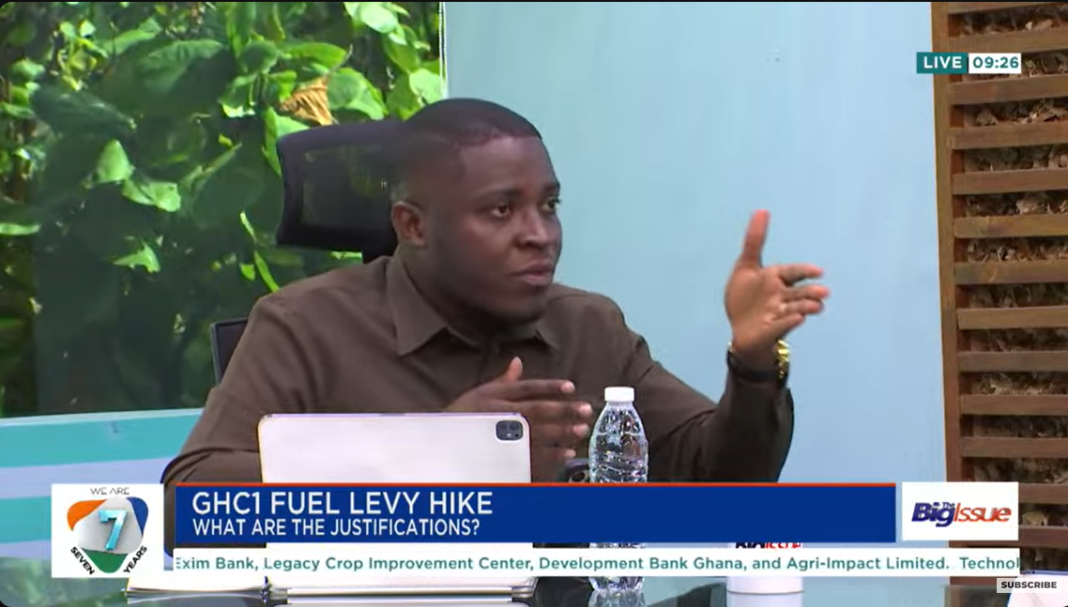The Member of Parliament for Ketu North, Edem Agbana, has defended the government’s decision to introduce an additional GHC1 levy, widely known as the Fuel Levy, on petroleum products, describing it as a crucial step toward resolving the long-standing challenges in Ghana’s energy sector.
Speaking on The Big Issue on Channel One TV on Saturday, June 7, 2025, Agbana said the amendment to the Energy Sector Levy Bill, 2025, which was passed by Parliament on June 3, marks a decisive move to stabilise the sector.
“We inherited a challenge, and our approach to the challenge is that we need to solve this problem once and for all, and we have decided not to play politics with it,” he stated.
The newly approved levy is expected to generate an estimated GHC 5.7 billion annually.
According to Agbana, although the revenue may not be entirely sufficient, it will play a significant role in reducing energy sector debts and ensuring a stable power supply.
“The challenge we are confronted with in the energy sector is fundamentally a financial issue, so you need to raise money,” he explained.
“With this levy, we are projecting to raise 5.7 billion annually, which will still not be enough, but we have other things that the government is putting in place to solve the problem.”
Agbana emphasised that the government is not simply transferring the burden onto citizens but is taking a holistic approach to ensure a sustainable solution.
“So, the government is not only approaching this issue by placing a burden on the Ghanaian people to pay an extra levy, but we are looking at how we can confront the issue from all sectors to ensure we find a solution that is lasting enough,” he added.
The passage of the levy has sparked mixed reactions from stakeholders. Independent Power Producers (IPPs) have welcomed the move, viewing it as a step toward clearing debts owed them.
However, the Chamber of Petroleum Consumers (COPEC) has opposed the increase, urging the government to find alternative funding sources rather than imposing further costs on petroleum products.
Despite the divided opinions, Agbana maintained that the levy is a necessary intervention to address the critical financial issues undermining the energy sector’s performance.
Parliament approves GHS1 fuel levy hike to address energy sector debt
